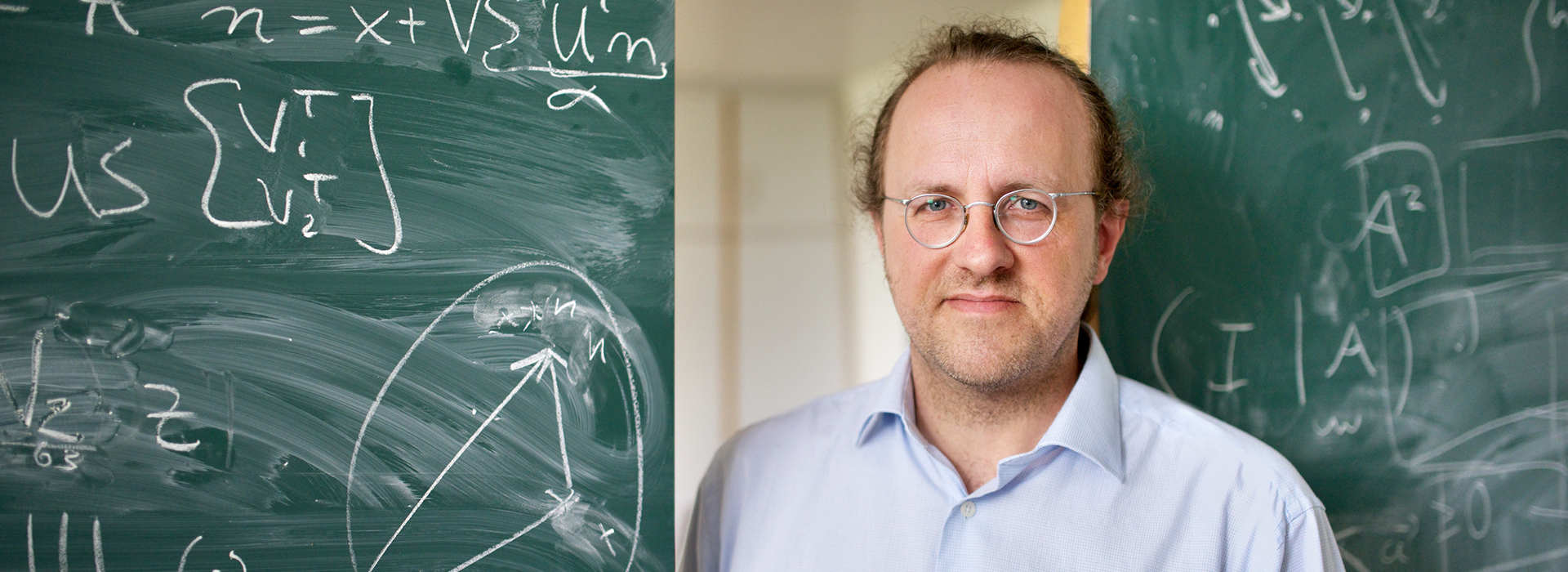By: Krista Davidson
23 Mar, 2020

The discovery is groundbreaking since the presence of water on K2-18b means it may have characteristics similar to Earth, and could point us towards better understanding our own planet. There is another reason this planet is special: it was discovered with the help of a team of interdisciplinary researchers who recognized the relationship between causal inference and the methods needed to discover the planet.
Bernhard Schölkopf, a fellow of the CIFAR Learning in Machines & Brains program and director of the Max Planck Institute for Intelligent Systems, co-developed the machine learning approach to identify exoplanets like K2-18b.
In the past, the hunt for exoplanets has greatly benefitted from the NASA Kepler Space Telescope, an instrument that enables scientists to observe changes in brightness when an exoplanet passes in front of its star every orbit. However, because planets are much smaller than stars, these changes are tiny. The physical signals recorded by telescopes like Kepler contain a considerable amount of unwanted noise. This makes exoplanets extremely difficult to detect, explains Schölkopf.
Working with Canadian astronomer David Hogg and Dan Foreman-Mackey, in 2013, Schölkopf wanted to see if machine learning could use the data provided by Kepler to identify planets. Schölkopf and his collaborators used machine learning to reconstruct the true astrophysical signal of one star using data from other stars. Drawing on large datasets collected from more than 100,000 stars obtained by Kepler, they were able to train powerful machine learning algorithms to eliminate systematic errors produced by the instrument.
“We noticed commonalities in the light emitted by different stars, so two different stars that are light years apart might get darker or brighter at the same time,” he says. When that happens, Schölkopf explains, it’s a clue that the instrument is a cause of these signals, not just the stars.
Eliminating noise from Kepler Telescope data became especially important in 2013, when the reaction wheels that orient the instrument malfunctioned. NASA kept the telescope online by taking advantage of radiation pressure from the sun and the telescope’s remaining fuel to keep the telescope stable, in a mission dubbed K2.
In 2015, Schölkopf and his team applied their training methods to the data provided by K2 and discovered 36 exoplanet candidates. More than half were subsequently confirmed by other methods. Among those confirmed was K2-18b, a planet 124 light years from Earth.
The discovery of water vapour in the atmosphere of K2-18b came the same week Schölkopf was awarded the 2019 Körber European Science Prize for his contributions in the field of machine learning. Schölkopf was awarded one million euros for his work in developing kernel methods, which he defines as a “mathematically elegant form of machine learning that can be applied to structured data and nonlinear dependencies.”
“It was a good week,” he admits. “As I was getting ready for the prize ceremony, David Hogg e-mailed me that one of the planets we discovered a few years ago made the news. It was rewarding to discover something new in the universe. My research is about understanding regularities in the world. That’s the basis of science, but it also underlies intelligence, enabling us to make predictions of the future.”
In February 2020, Schölkopf was notified that he would be awarded the BBVA Foundation Frontiers of Knowledge Award in the Information and Communication Technologies category in June 2020. The award, which he shared with Isabelle Guyon and Vladimir Vapnik, carries a prize of 400,000 euros.
Together with colleagues in CIFAR’s Learning in Machines & Brains program, Schölkopf is now working on robust algorithms building on causal dependencies that enable machines to adapt to new environments.
“As scientists collect more and more data, and as the research in machine learning and AI progresses, the potential grows for these new methodologies to contribute to significant advances in science,” says Yoshua Bengio, co-director of the CIFAR Learning in Machines & Brains and Canada CIFAR AI Chair from Mila and Universite de Montreal. “I’m delighted to see this particular breakthrough, due in part to my friend and collaborator Bernhard Schoelkopf, who has been a pillar of CIFAR’s program on Learning in Machines & Brains, and who was recently honoured with major prizes for his outstanding contributions to our field.”
CIFAR’s Learning in Machines & Brains program played a major part in the AI revolution by examining how artificial neural networks could be inspired by the human brain, and developing the powerful technique of deep learning.
Now the program is expanding our understanding of the fundamental computational and mathematical principles that enable intelligence through learning, whether in brains or in machines.
Current AI systems are limited in their ability to understand the world around us. CIFAR’s Learning in Machines & Brains program attacks those limitations by going back to basic questions rather than focusing on short-term technological advances. This fundamental approach has the dual benefit of improving the engineering of intelligent machines and explaining intelligence.
CIFAR is a registered charitable organization supported by the governments of Canada and Quebec, as well as foundations, individuals, corporations and Canadian and international partner organizations.